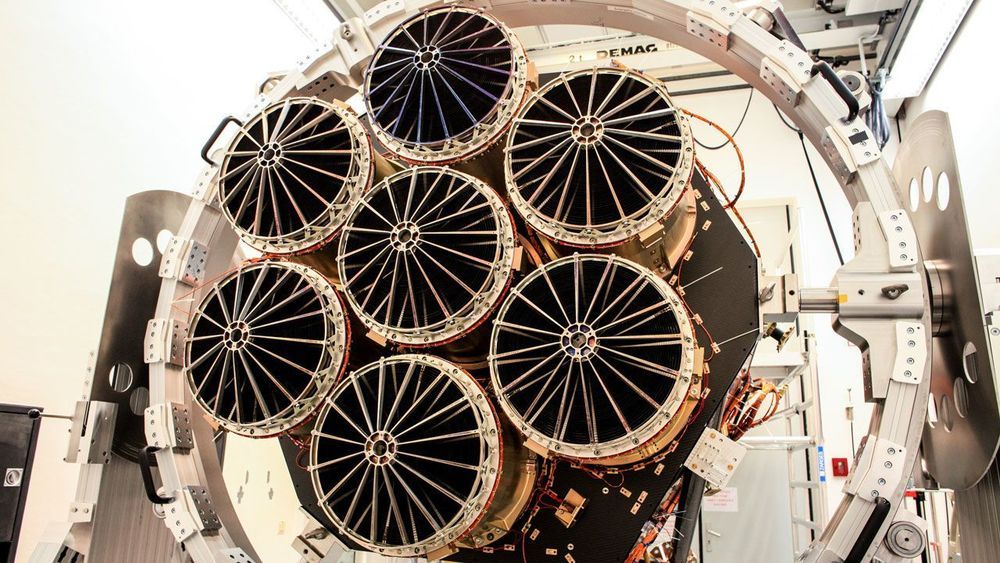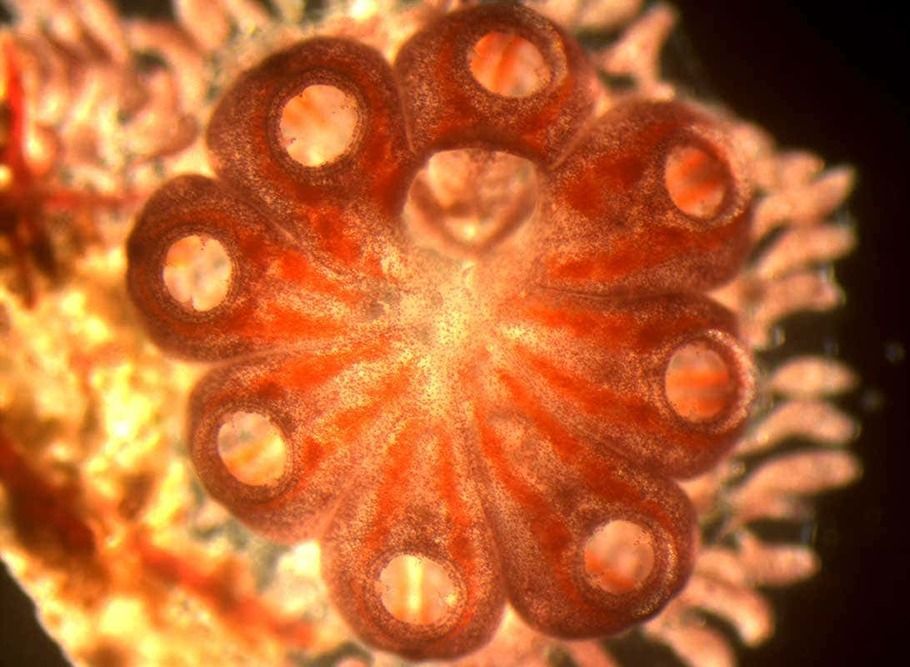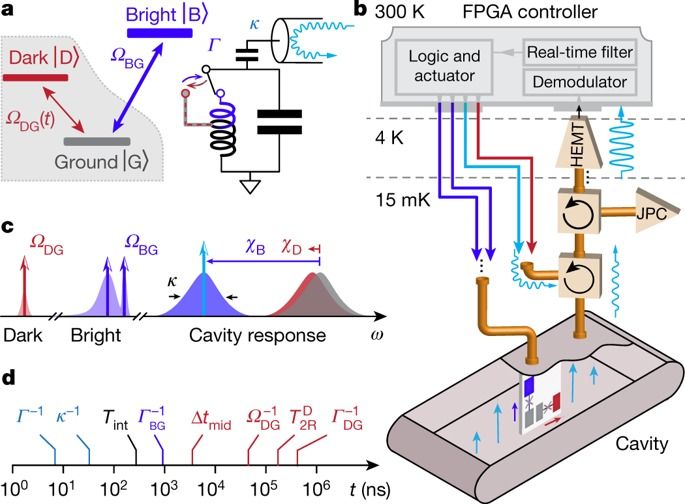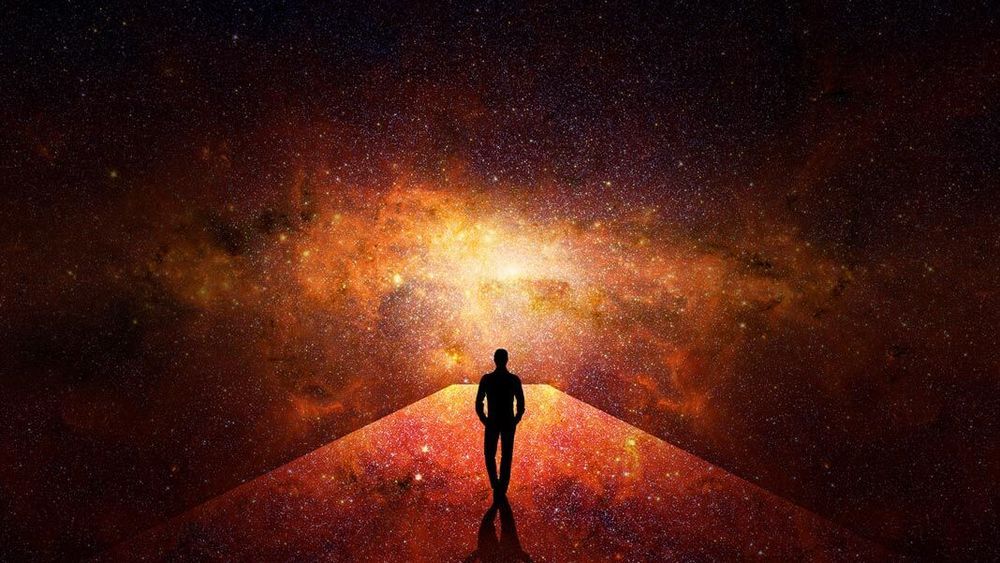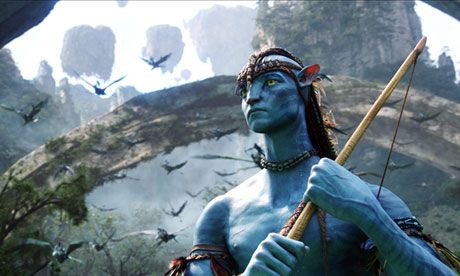Archive for the ‘evolution’ category: Page 123
Jun 12, 2019
Telescope designed to study mysterious dark energy keeps Russia’s space science hopes alive
Posted by Derick Lee in categories: cosmology, evolution, science
Russia’s beleaguered space science program is hoping for a rare triumph this month. Spektr-RG, an x-ray satellite to be launched on 21 June from Kazakhstan, aims to map all of the estimated 100,000 galaxy clusters that can be seen across the universe. Containing as many as 1000 galaxies and the mass of 1 million billion suns, the clusters are the largest structures bound by gravity in the universe. Surveying them should shed light on the evolution of the universe and the nature of the dark energy that is accelerating its expansion.
Spektr-RG x-ray mission will be nation’s only space observatory.
Jun 10, 2019
Sea creature uses stem cells to regrow entire body from a tiny piece
Posted by Quinn Sena in categories: biotech/medical, evolution
Sea squirts use stem cells to regenerate their bodies from nothing but fragments of blood vessel, a finding that could help uncover the evolution of regeneration.
Jun 10, 2019
The Objectivity Myth: What We Call ‘Objective Reality’ Doesn’t Actually Exist
Posted by Alex Vikoulov in category: evolution
Objective reality is merely a pattern that a mind constructs because it provides a useful simplified explanatory scaffolding of the long series of subjectively perceived moments stored in its memory. Think about it when the next time you come across these overloaded terms ‘objective reality’ and ‘objectivity’ – to be precise, they mean ‘intersubjectivity’ instead: Termites would never comprehend chess, for example, this human abstraction lies beyond their species-specific intersubjective mind-network. Apart from inter-species levels of abstractions we should consider psychological, cultural and linguistic differences between individuals of the same species that makes objectivity simply non-existent. We can still use ‘objective reality’, ‘objectivity’ or ‘objectively’ colloquially but we should bear in mind that in a deeper sense these terms are no more than colorful misnomers. https://www.ecstadelic.net/top-stories/what-we-call-objectiv…ally-exist #ObjectivityMyth
We can’t help but anthropomorphize the notion of objective reality. As I make my case in the new 2019 book, The Syntellect Hypothesis: Five Paradigms of the Mind’s Evolution , objective reality does not exist, what exists instead is subjectivity, intersubjectivity (or “consensus” reality) and supersubjectivity (overmind, The Omega Hypermind in the book). This extraordinary claim apparently demands an explanation, so let’s get to it.
Jun 7, 2019
To catch and reverse a quantum jump mid-flight
Posted by Quinn Sena in categories: evolution, particle physics, quantum physics
In quantum physics, measurements can fundamentally yield discrete and random results. Emblematic of this feature is Bohr’s 1913 proposal of quantum jumps between two discrete energy levels of an atom. Experimentally, quantum jumps were first observed in an atomic ion driven by a weak deterministic force while under strong continuous energy measurement2,3,4. The times at which the discontinuous jump transitions occur are reputed to be fundamentally unpredictable. Despite the non-deterministic character of quantum physics, is it possible to know if a quantum jump is about to occur? Here we answer this question affirmatively: we experimentally demonstrate that the jump from the ground state to an excited state of a superconducting artificial three-level atom can be tracked as it follows a predictable ‘flight’, by monitoring the population of an auxiliary energy level coupled to the ground state. The experimental results demonstrate that the evolution of each completed jump is continuous, coherent and deterministic. We exploit these features, using real-time monitoring and feedback, to catch and reverse quantum jumps mid-flight—thus deterministically preventing their completion. Our findings, which agree with theoretical predictions essentially without adjustable parameters, support the modern quantum trajectory theory5,6,7,8,9 and should provide new ground for the exploration of real-time intervention techniques in the control of quantum systems, such as the early detection of error syndromes in quantum error correction.
Jun 4, 2019
The Patent Subject Matter Reconfiguration and the Emergence of Proprietarian Norms
Posted by Quinn Sena in categories: business, evolution, law
This paper analyses the evolution of the institution of patent by examining the normative meaning of business method patents. A business method is defined as a process of converting abstract data to useful information, to be applied in business activities. A business method patent is a patent whose claims are directed to a business method, regardless of the claim format. In recent years, the patenting of business methods in the US, Japan and in Europe has generated a global claim of controversy. Business method patenting is often seen as an example of subject matter expansion, by which process the institution of patent accommodates challenges brought forth by the increased quantity of potential subject matter. As the subject matter expansion begs the question of what is the proper boundary of the patent law, this paper attempts to answer this question by examining relevant statutes and cases, the administrative examination guidelines of the patent offices, and the claims of business method patents issued in Japan, the US and Europe. Specifically, the thesis questions whether business method patenting signifies something more than a mere accretion of a subject matter, and is a reconfiguration of patent eligible subject matter; and whether this can be justified with the instrumentalism. The paper suggests that to include business methods as a patent-eligible subject matter, courts and patent offices in the US, Japan and Europe have commonly redefined the meaning of invention of technology, from the context of physical instantiation, i.e., physical transformation, to the level of conceptual instantiation, i.e., useful information. Although they are varying in their extensiveness, as a result, the practical definitions of patent-eligible subject matter in all three regions, understood from the issued patents, court decisions and examination guidelines, reflects this change. This thesis argues that this could signify the reconfiguration of patent-eligible subject matter.
May 30, 2019
Purposeful Evolution: Creating an Ethical, Prosperous Future
Posted by Shailesh Prasad in categories: evolution, neuroscience
More often than not, we fall into the trap of trying to predict and anticipate the future, forgetting that the future is up to us to envision and create. In the words of Buckminster Fuller, “We are called to be architects of the future, not its victims.”
But how, exactly, do we create a “good” future? What does such a future look like to begin with?
In Future Consciousness: The Path to Purposeful Evolution, Tom Lombardo analytically deconstructs how we can flourish in the flow of evolution and create a prosperous future for humanity. Scientifically informed, the books taps into themes that are constructive and profound, from both eastern and western philosophies.
Continue reading “Purposeful Evolution: Creating an Ethical, Prosperous Future” »
May 29, 2019
Quantum noise and stochastic reduction
Posted by Quinn Sena in categories: evolution, information science, law, quantum physics
Abstract: In standard nonrelativistic quantum mechanics the expectation of the energy is a conserved quantity. It is possible to extend the dynamical law associated with the evolution of a quantum state consistently to include a nonlinear stochastic component, while respecting the conservation law. According to the dynamics thus obtained, referred to as the energy-based stochastic Schrodinger equation, an arbitrary initial state collapses spontaneously to one of the energy eigenstates, thus describing the phenomenon of quantum state reduction. In this article, two such models are investigated: one that achieves state reduction in infinite time, and the other in finite time. The properties of the associated energy expectation process and the energy variance process are worked out in detail. By use of a novel application of a nonlinear filtering method, closed-form solutions—algebraic in character and involving no integration—are obtained for both these models. In each case, the solution is expressed in terms of a random variable representing the terminal energy of the system, and an independent noise process. With these solutions at hand it is possible to simulate explicitly the dynamics of the quantum states of complicated physical systems.
From: Dorje C. Brody [view email]
[v1] Mon, 29 Aug 2005 13:22:36 UTC (43 KB)
May 29, 2019
I See You: the posthuman subject and spaces of virtuality – Rebecca Bishop
Posted by Steve Nichols in categories: biotech/medical, evolution, neuroscience
Everything is backwards now, like out there is the real world and this is the dream. (James Cameron’s Avatar, 2009)
Over recent years, considerable scholarly attention and mass media speculation has been paid to the emergence of the figure of the posthuman – a vision of augmented human that has undergone radical transformation as a result of new biotechnological and informatic technologies. This posthumanity lives simultaneously in the world of the virtual and the biological, cast concurrently as the future of a biomedically enhanced humanity and a figuration for overcoming the identity politics of the past. Some are arguing that we will eventually leave the human ‘as we know it’ behind, in a techno-modified, cognitively enhanced evolution, while in critical theory, the posthuman is being lauded as an ontology through which the boundary structures of the EuroWestern legacy of humanism can be dismantled.
Continue reading “I See You: the posthuman subject and spaces of virtuality – Rebecca Bishop” »
May 27, 2019
Signs of selection in the stomach
Posted by Xavier Rosseel in categories: biotech/medical, evolution, genetics
Helicobacter pylori, a globally distributed gastric bacterium, is genetically highly adaptable. Microbiologists at LMU have now characterized its population structure in individual patients, demonstrating an important role of antibiotics for its within-patient evolution.
The cosmopolitan bacterium Helicobacter pylori is responsible for one of the most prevalent chronic infections found in humans. Although the infection often provokes no definable symptoms, it can result in a range of gastrointestinal tract pathologies, ranging from inflammation of the lining of the stomach to gastric and duodenal tumors. Approximately 1 percent of all those infected eventually develop stomach cancer, and the World Health Organization has classified H. pylori as a carcinogen. One of Helicobacter pylori’s most striking traits is its genetic diversity and adaptability. Researchers led by microbiologist Sebastian Suerbaum (Chair of Medical Microbiology and Hospital Epidemiology at LMU’s Max von Pettenkofer Institute have now examined the genetic diversity of the species in the stomachs of 16 patients, and identified specific adaptations that enable the bacterium to colonize particular regions of the stomach.

